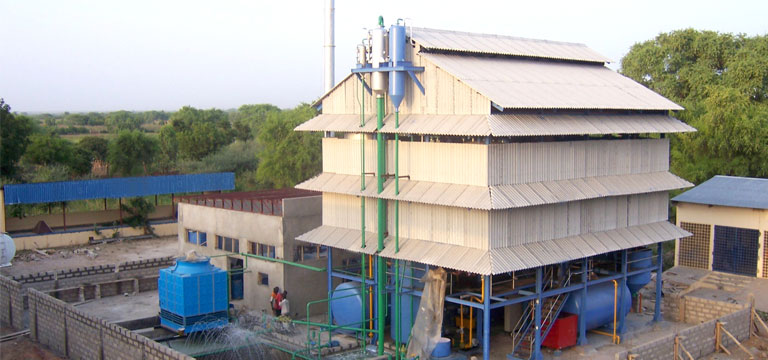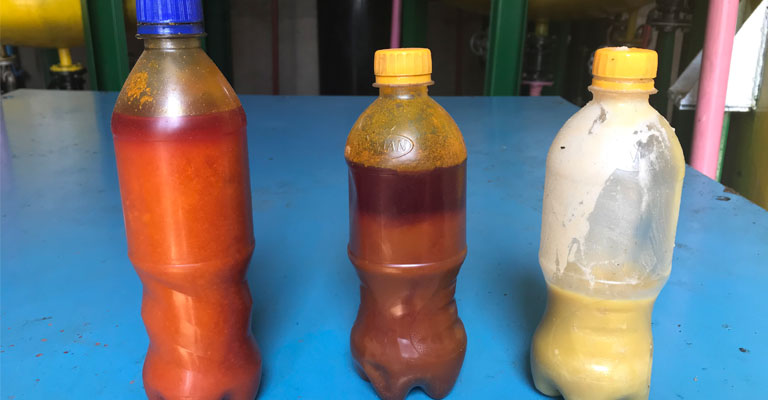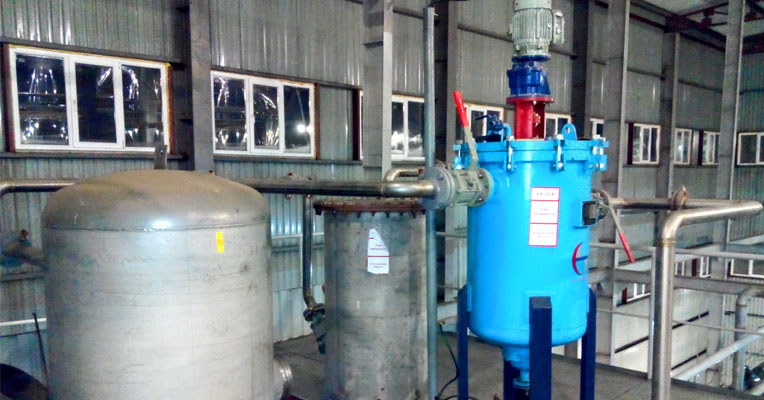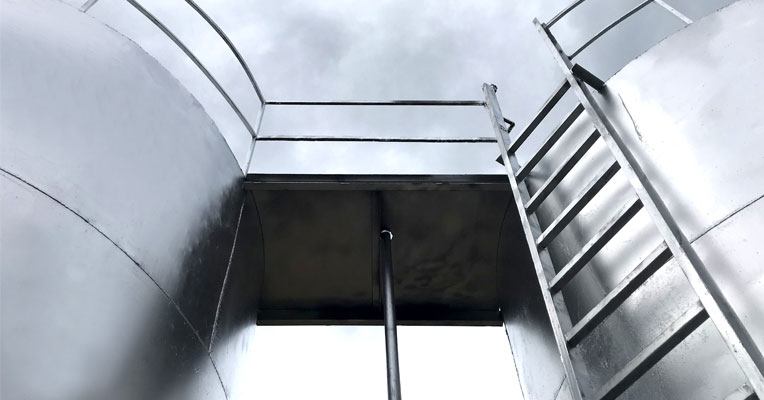Mahatma Gandhi on Machinery
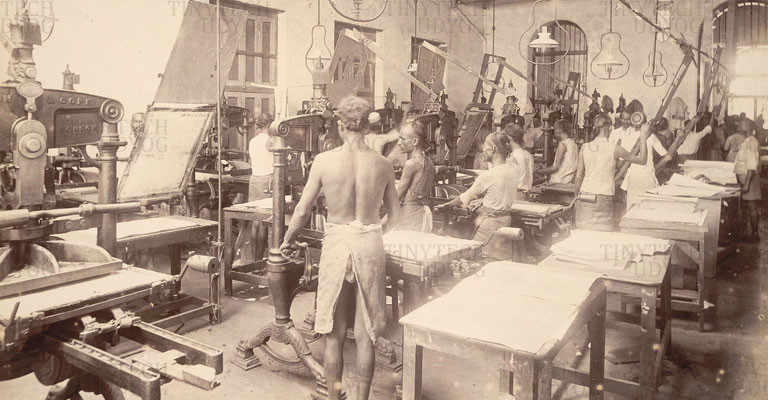
17 Aug 2018 / Siddharth Jivani  Download Pdf
Download Pdf
Question: ‘Are you against all machinery?’
Answer: My answer is emphatically, ‘No’. But, I am against its indiscriminate multiplication. I refuse to be dazzled by the seeming triumph of machinery. I am uncompromisingly against all destructive machinery. But simple tools and instruments and such machinery as saves individual labour and lightens the burden of the millions of cottages, I should welcome. (17-6-1926)
What I object to, is the craze for machinery, not machinery as such. The craze is for what they call labour-saving machinery. Men go on ‘saving labour’, till thousands are without work and thrown on the open streets to die of starvation. I want to save time and labour, not for a fraction of mankind, but for all. I want the concentration of wealth, not in the hands of few, but in the hands of all. Today machinery merely helps a few to ride on the back of millions. The impetus behind it all is not the philanthropy to save labour, but greed. It is against this constitution of things that I am fighting with all my might.
Question: ‘Then you are fighting not against machinery as such, but against its abuses which are so much in evidence today.’
Answer: I would unhesitatingly say ‘yes’; but I would add that scientific truths and discoveries should first of all cease to be mere instruments of greed. Then laborers will not be over-worked and machinery, instead of becoming a hindrance, will be a help. I am aiming, not at eradication of all machinery, but limitation.
Question: ‘When logically argued out, that would seem to imply that all complicated power-driven machinery should go.’
Answer: It might have to go but I must make one thing clear. The supreme consideration is man. The machine should not tend to make atrophied the limbs of man. For instance, I would make intelligent exceptions. Take the case of the Singer Sewing Machine. It is one of the few useful things ever invented, and there is a romance about the device itself. Singer saw his wife laboring over the tedious process of sewing and seaming with her own hands, and simply out of his love for her he devised the Sewing Machine in order to save her from unnecessary labour. He, however, saved not only her labour but also the labour of everyone who could purchase a sewing machine.
Question: ‘But in that case there would have to be a factory for making these Singer Sewing Machines and it would have to contain power-driven machinery of ordinary type.’
Answer: Yes, but I am socialist enough to say that such factories should be nationalized, or State-controlled. They ought only to be working under the most attractive and ideal conditions, not for profit, but for the benefit of humanity, love taking the place of greed as the motive. This mad rush for wealth must cease. The saving of labour of the individual should be the object, and honest humanitarian consideration, and not greed, the motive. Replace greed by love and everything, will come right. (13-11-1924)
Organization of machinery for the purpose of concentrating wealth and power in the hands of a few and for the exploitation of many I hold to be altogether wrong. Much of the organization of machinery of the present age is of that type.
Machinery has its place; it has come to say. But it must not be allowed to displace necessary human labour.
I would welcome every improvement in the cottage machine, but I know that it is criminal to displace the hand-labour by power-driven spindles unless one is at the same time ready to give millions of farmers some other occupation in their homes. (5-11-1925)
Man is the most wonderful machine in creation. It can neither be duplicated nor copied. (25-08-1946)
I hold that the machinery method is harmful when the same thing can be done easily by millions of hands not otherwise occupied. It is any day better and safer for the millions, spread in the seven hundred thousand villages of India scattered over an area nineteen hundred miles long and fifteen hundred broad that they manufacture their clothing in their own villages even as they prepare their own food. These villages cannot retain the freedom they have enjoyed from time immemorial, if they do not control the production of prime necessaries of life. Western observers hastily argue from Western conditions that what may be true of them must be true of India where conditions are different in so many material respects. Application of the laws of economics must vary with varying conditions.
If the craze for the machinery method continues, it is highly likely that a time will come when we shall be so incapacitated and weak but we shall begin to curse ourselves for having forgotten the use of the living machines given to us by God. Millions cannot keep fit by games and athletics. And why should they exchange the useful, productive and expensive games and exercises?
When Indian becomes self-supporting, self-reliant and proof against temptations and exploitation, she will cease to be the object of greedy attraction for any power in the West or the East, and will then feel secure without having to carry the burden of expensive armament. Her internal economy will be India’s strongest bulwark against aggression.(2-7-1931)
The present use of machinery tends more and more to concentrate wealth in the hands of a few in total disregard of millions of men and women whose bread is snatched by it out of their mouths. (14-9-1935)
I am not fighting machinery as such, but the madness of thinking that machinery saves labour. Men `save’ labour until thousands of them are without work and die of hunger on the streets. I want to secure employment and livelihood not only to part of the human race, but for all. I will not have the enrichment of a few at the expense of the community. At present, the machine is helping a small minority to live on the exploitation of the masses. The motive force of this minority is not humanity and love of their kind, but greed and avarice. This state of things I am attacking with all my might. What is the cause of the present chaos? It is exploitation, I will not say, of the weaker nations by the stronger, but of sister nations by sister nations. And my fundamental objection to machinery rests on the fact that it is machinery that has enabled these nations to exploit others. In itself it is a wooden thing and can be turned to good purpose or bad. But it is easily turned to a bad purpose as we know.(22-10-1931)
Machinery is like a snake-hole which may contain from one to a hundred snakes. Where there is machinery, there are large cities; and where there are large cities, there are tram-cars and railways; and there only does one see electric light. Honest physicians will tell you that where means of artificial locomotion have increased, the health of the people has suffered. I remember that when in a European town there was scarcity of money, the receipts of the tramway company, of the lawyers and of the doctors went down, and the people were less unhealthy. I cannot recall a single good point in connection with machinery.(1908)
Do I want to put back the hand of the clock of progress? Do I want to replace the mills by hand-spinning and hand-weaving? Do I want to replace the railway by the country cart? Do I want to destroy machinery altogether? These questions have been asked by some journalists and public men. My answer is: I would not weep over the disappearance of machinery or consider it a calamity. But I have no design upon machinery as such.(19-1-1921)
If we could have electricity in every village home, I should not mind villagers plying their implements and tools with the help of electricity. But then the village communities or the State would own power houses, just as they have their grazing pastures.
I would prize every invention of science made for the benefit of all. There is a difference between invention and invention. I should not care for the asphyxiating gases capable of killing masses of men at a time. The heavy machinery for work of public utility which cannot be undertaken by human labour has its inevitable place, but all that would be owned by the State and used entirely for the benefit of the people. I can have no consideration for machinery which is meant either to enrich the few at the expense of the many, or without cause to displace the useful labour of many.(22-6-1935)
I am not opposed to the progress of science as such. On the contrary the scientific spirit of the West commands my admiration.(17-12-1925)
Mechanization is good when the hands are too few for the work intended to be accomplished. It is an evil when there are more hands than required for the work, as is the case in India. . . .
Question: ”You are opposed to machinery in general. That is not true, I believe.”
Answer: ”That is quite wrong,” answered Gandhiji. ”The spinning wheel is also machinery. It is a beautiful work of art. It typifies the use of machinery on a universal scale. It is machinery reduced to the terms of the masses.”
Question: ”So you are opposed to machinery, only because and when it concentrates production and distribution in the hands of the few.”
Answer: You are right. I hate privilege and monopoly. Whatever cannot be shared with the masses is taboo to me. That is all.” (2-11-1934)
If the machinery craze grows in our country, it will become an unhappy land. (1908)
